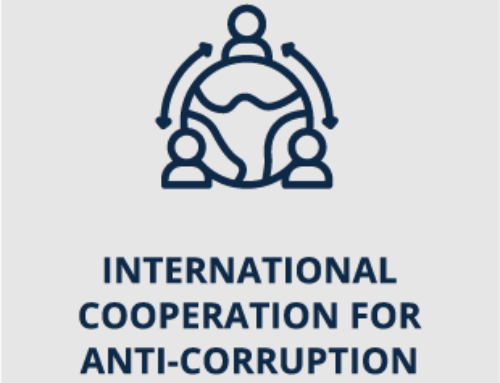Leaders Emphasize Need for Bipartisan Approach to Counter Corruption
WASHINGTON—Today, Representatives Tom Malinowski (D-NJ-07) and John Curtis (R-UT-03) of the Congressional Caucus against Foreign Corruption and Kleptocracy made the following statement in response to the publication of the U.S. Strategy on Countering Corruption:
“As Co-Chairs of the Caucus against Foreign Corruption and Kleptocracy, we welcome the White House strategy to counter the national security threat of corruption. A strong bipartisan approach to counter corruption is critical at a time when dictators regularly use corruption to fortify their regimes and undermine democracy across the globe. The Caucus has introduced numerous bipartisan bills which reflect calls for congressional activity in the strategy. We call on the administration to support these measures.”
The strategy calls for “working with the Congress to expand authorities where necessary, to make sure that key gatekeepers to the financial system—including lawyers, accountants, and trust and company service providers—cannot evade scrutiny.” This reflects the provisions of the bipartisan ENABLERS Act, led by Representatives Malinowski and Maria Salazar (R-FL-27), which would provide the Department of the Treasury the authority to ensure that unscrupulous enablers cannot evade security.
The strategy also calls for “working with the Congress to criminalize the demand side of bribery by foreign public officials.” This reflects the provisions of the Foreign Extortion Prevention Act, led by Representatives Sheila Jackson Lee and Curtis, which would provide the Department of Justice the authority to prosecute foreign officials who abuse their power to demand bribes. This bill has also been introduced in the Senate by Senators Sheldon Whitehouse (D-RI) and Thom Tillis (R-NC).
The strategy states, “The United States will expand existing, and develop new, rapid response tools for emerging areas of increased risk for corruption.” This reflects the Countering Russian and Other Overseas Kleptocracy (CROOK) Act, led by Representatives Bill Keating (D-MA-09) and Brian Fitzpatrick (R-PA-01), which would create an anti-corruption rapid response fund financed by a surcharge on large Foreign Corruption Practices Act foreign bribery cease. This bill has also been introduced in the Senate by Senators Ben Cardin (D-MD) and Roger Wicker (R-MS).
The strategy also states, “While we do not have a CBI program, the Administration is also committed to working with the Congress to enhance the process for vetting and granting visas under the U.S. EB-5 program.” This reflects the Golden Visa Accountability Act, led by Representatives Adam Kinzinger (R-IL-16) and Malinowski, which would create an information-sharing database to vet investment visa applications among friends and allies.
CAFCAK leads the fight against kleptocracy, an authoritarian governance model in which political leaders routinely engage in illicit self-enrichment, maintain power through corrupt patronage networks, exploit rule of law jurisdictions to conceal and protect stolen assets, and use strategic corruption as a tool of foreign policy.
Because the struggle against foreign corruption spans several of committees of jurisdiction, the caucus will allow members and staff to share perspectives and coordinate efforts to confront the growing threat of foreign corruption. CAFCAK holds periodic hearings, sponsors informal roundtables and staff briefings with leading experts, coordinates oversight letters and legislative initiatives, and facilitates information-sharing across committees.




